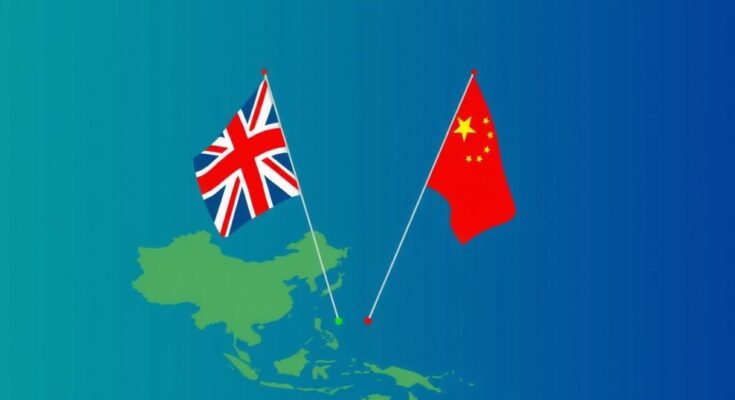The UK and China have the opportunity to lead global climate cooperation through enhanced bilateral collaboration, especially highlighted at recent meetings such as the G20 summit and COP29. By aligning their climate change committees and setting ambitious Nationally Determined Contributions (NDCs) for 2035, they can exemplify effective climate action and inspire others to follow suit as global temperatures rise.
Global climate challenges necessitate enhanced collaboration, particularly between significant nations like the UK and China. As global temperatures continue to soar and climate impacts escalate, the recent United Nations Framework Convention on Climate Change (UNFCCC) Conference of the Parties (COP29) in Azerbaijan marks a pivotal moment for international climate dialogue. Although multilateral discussions have yielded some advancements, including on international carbon markets, there is a shift towards bilateral and sub-national initiatives that promise further progress. This evolving landscape demands strong cooperation among nations to lead and inspire global climate actions.
At the G20 summit in Brazil, UK and Chinese leaders underscored their commitment to tackle shared challenges in clean energy and climate change. To bolster both bilateral and multilateral cooperation, it has been suggested that their respective expert climate change committees enhance their collaborative efforts. Despite differing mandates and structures, these committees can synergize to facilitate effective decarbonization strategies that underpin economic growth and job creation in both countries.
The UK Climate Change Committee is actively shaping the nation’s 2035 Nationally Determined Contribution (NDC), while China’s committee is providing counsel on its dual carbon goals and managing climate risks. Through collaborative endeavors, both countries might foster a broad consensus that is actionable and in alignment with their national contexts. Supported by esteemed organizations such as Chatham House, efforts have been made since 2013 to pool climate science and policy knowledge, which has only intensified over the last two years.
The UK and China have an opportunity to build upon a decade of fruitful cooperation. Through enhancing their existing frameworks, both countries could collaboratively issue a joint statement that emphasizes their commitment to advancing the multilateral climate agenda. Proposed workstreams could concentrate on crucial areas such as clean energy transitions and green finance, all while promoting equitable and sustainable development alongside other nations.
In anticipation of the UK and China’s formal submissions of robust NDCs for 2035, there exists a chance for these nations to exemplify global leadership in climate action. By affirmatively pursuing these targets, they stand to set a benchmark for the world, rallying other nations toward comprehensive climate strategies.
The ongoing global climate crisis is evidenced by unprecedented temperature increases and escalating environmental challenges. The recent COP29 in Azerbaijan attempted to address these issues within a multilateral framework. However, there is a growing recognition of the importance of bilateral agreements, such as those between the UK and China, in fostering necessary advancements in climate cooperation. Both nations are pivotal players in international climate negotiations, significantly impacting global carbon emission trajectories. Collaboration between their climate committees highlights the potential for shared strategies and targeted actions to achieve national and international climate goals.
In summary, the collaboration between the UK and China in addressing climate change is crucial at this juncture. By enhancing interactions within their climate committees and coordinating efforts on significant climate issues, both nations can set an exemplary path for others to follow. Their commitment to meeting ambitious NDCs will not only contribute to global climate resilience but also foster a more sustainable economic future, establishing a model of cooperation for other countries to emulate.
Original Source: www.chinadaily.com.cn




